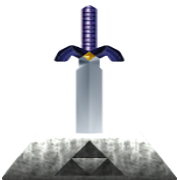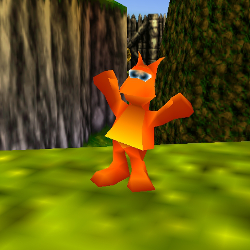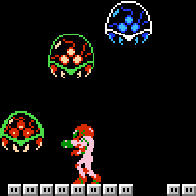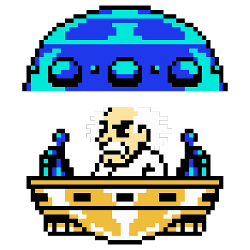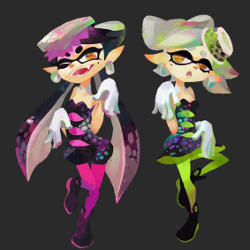DLC: Just Right, Too Much, or Not Enough?
By Greg Betancourt Jr. (@SilverGreg78)
1/29/2016
From micro transactions to huge game upgrades including maps, weapons, and storyline, DLC in gaming is here to stay, whether you like it or not. Downloadable content (DLC for short), which is the addition of content in a game through either paid or free downloads. In the past decade it has become a mainstay practice for many companies in the gaming industry, and while it may seem like a great concept, not everyone agrees that it's what is best for players. Has this concept changed the gaming industry for the better, or has it turned a great idea into a poisonous cash grab?
At its core, DLC is a great idea: you buy a new game, and after you complete it, just as it's about to feel stale and boring, the creators of the game will allow you to download new adventures, new characters, and even whole new worlds, all for a price much lower than buying a new game. In some cases, the added content may even be free. The best part of all of this is that you don't even have to rush out to a store and wait in a long line hoping you get it. It comes right to your game console. It's become a fantastic way to increase the longevity of your games, and for many, the promise of future DLC is a deciding factor in which games to buy and which companies to support. Other uses for DLC include the balancing of character strengths and weaknesses, particularly in fighting games, weapon or ability upgrades to make combat easier, new gameplay modes and options, and cosmetic upgrades such as new costumes. Another great feature is the ability to correct unexpected programming errors through corrective addons, commonly known as "patches". For all these reasons, the utilization of DLC has been a very welcome addition to the video gaming community.
Unfortunately, there is also a very dark side to its usage. For some time now, companies have been accused of taking complete games and stripping away many of the features and even story elements, selling customers an incomplete version of the game at full price, then selling content that was originally included as DLC at a later time. In some cases, DLC was offered the same day as the games release, which in actuality wasn't downloading content but unlocking content already on the game disc. In what may be the worst offenses, some games have been release with numerous programming errors that make gameplay either difficult or nearly impossible, and DLC is released soon after to correct these issues. While corrective patches such as those are free, it's unfair to sell customers a game which is known to function incorrectly. The use, and abuse, of DLC in these ways has created much debate about the place it holds in the gaming industry. Some believe that its very existence was created solely to sell content at a much higher long term price then selling a single game. Others contend that the ability to buy upgrades which make the game easier to complete (often referred to as "pay to win") are harmful to gaming as a whole, as gamers will come to demand easier to complete gaming, decreasing the overall value of the gameplay experience.
Still, there is a third side to the discussion. Should the industry be moving into a more DLC based business? Some genres, such as sports games, will offer a new game every year at full price, even though the only major changes will be to the character rosters or minor gameplay adjustments. Many believe that since minor graphic upgrades are not as important as gameplay or story, a full price game should be treated as a "base game", and all upgrades, even full stories which would normally be sold to customers as sequels, should only be available as DLC at a discounted price. New, full price games should only become available as major changes to the graphics engine are made, or as compilation packages containing all previous DLC. New character rosters could be downloaded on a yearly basis for sports and even fighting games, which would not only rotate new characters in, but take some out, resulting in a new but familiar experience. Many people who play massively multiplayer online games (MMOs) play them in part because added content is a regular practice for those games, resulting in an ever changing gameplay experience, and requiring a new game purchase only once every several years.
Downloadable content in video gaming has proven to have its huge benefits in the industry. It's given players the ability to extend the life of many of their favorite games, either through gameplay enhancements, cosmetic upgrades, fixes to bugs and glitches, or even difficulty adjustments. It has also become an outlet for some unscrupulous practices, such as overpricing content, or selling games that are virtually unplayable due to problems which should have been corrected prior to release. There is even an argument that the industry should contain even more DLC, even replacing the idea of full price sequels with complete, downloadable stories. Wherever you stand on the issue of DLC, the reality is that it isn't going away. The only debate left lies in whether we have enough of it, too much of it, or could use more of it.
What do you think about DLC? Be sure to share your thoughts in the comments below. If you liked that article, be sure to follow Greg on Twitter, @SilverGreg78, and check out his new YouTube channel, UncleSilverGaming.
The Author

Hey there everybody! Ever since I was a kid, I've been a huge geek and totally proud of it. Movies, TV shows, comics, and anything else geeky and nerdy and amazing, but gaming is and will always be my first love. I've loved classic games ever since classic games were new games, and I love sharing them with others, whether it's in a shop, at a convention, or online through social media or YouTube. It's a passion that has given me years of enjoyment, and hopefully, many more to come. Let it do the same for you, too. Remember, geeky and proud!

